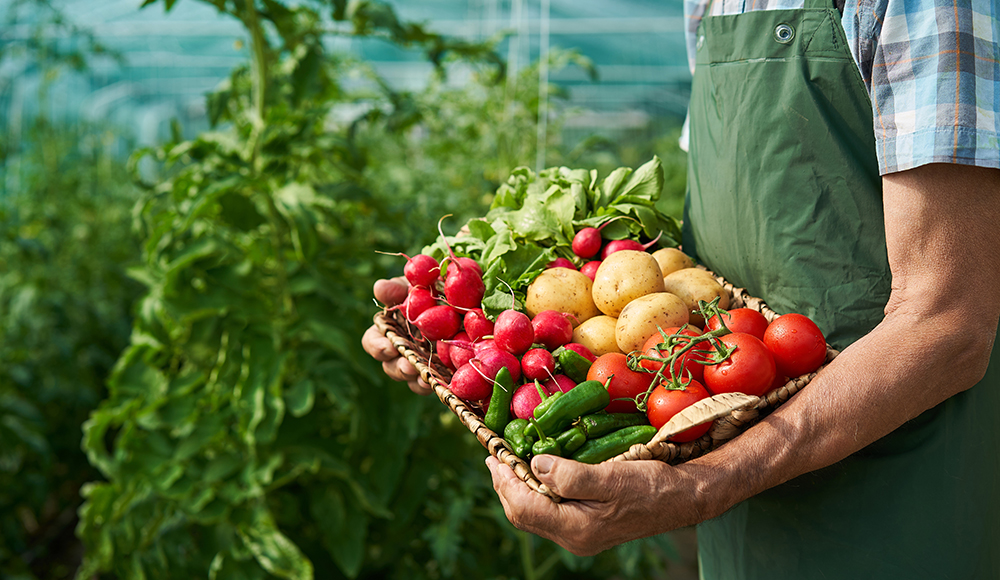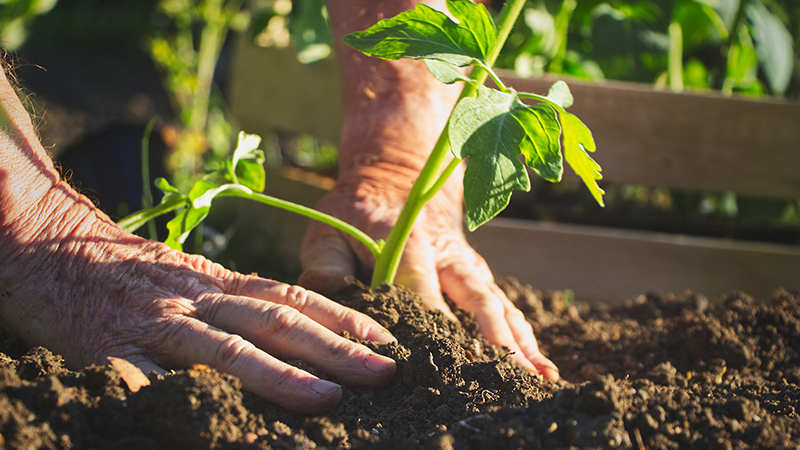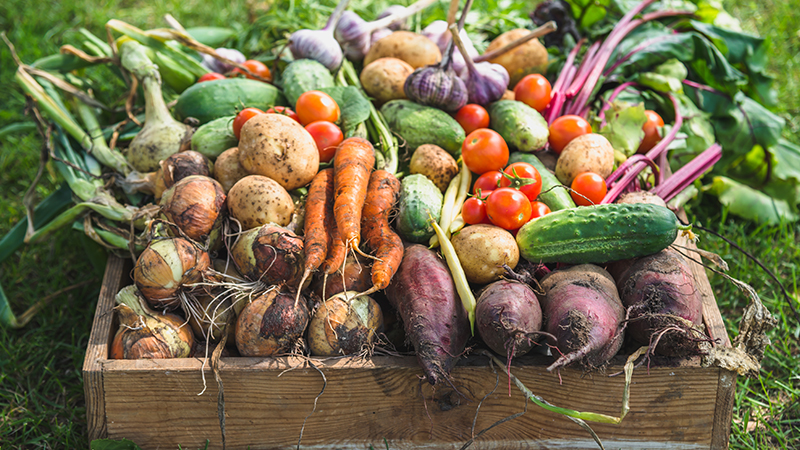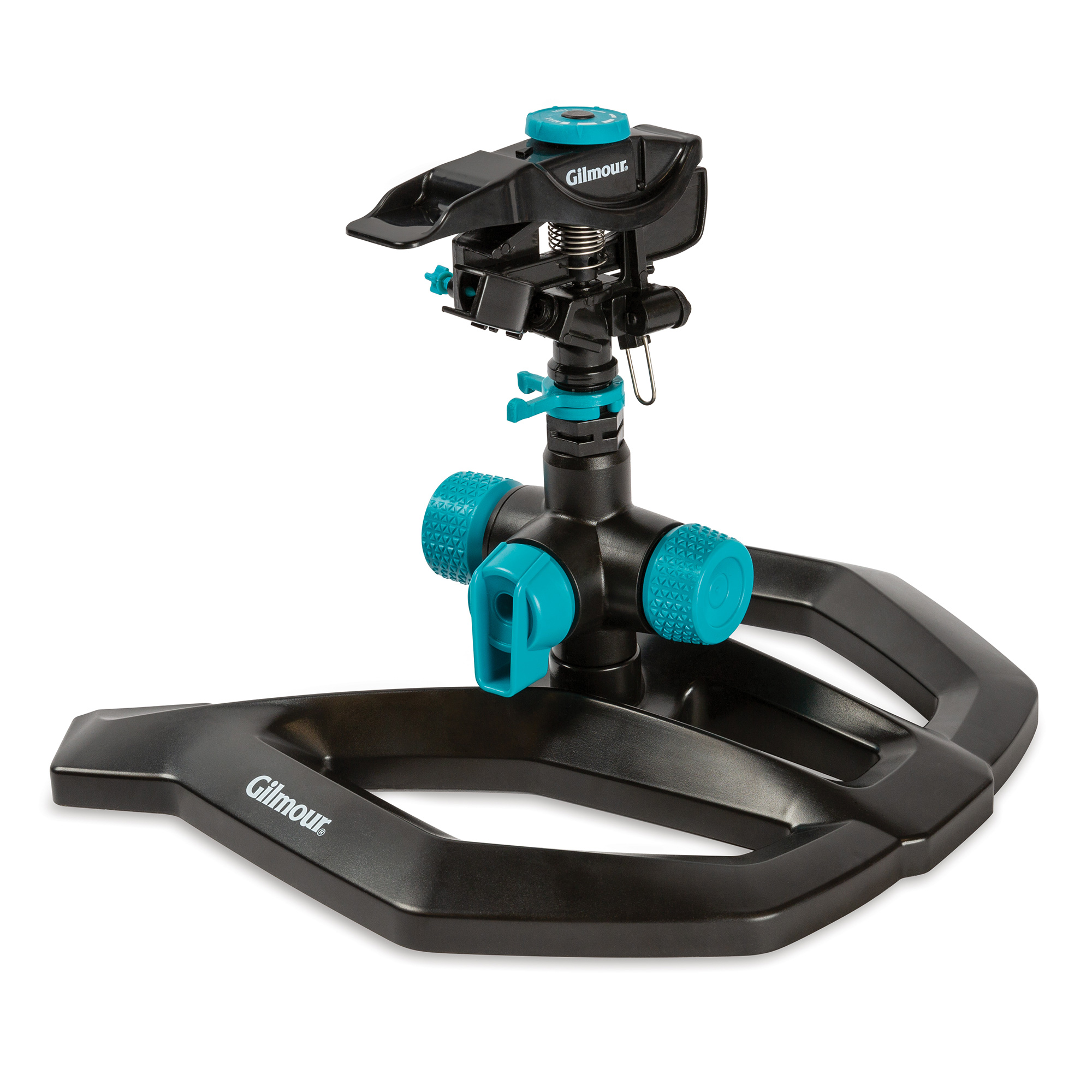What Does Organic Gardening Mean
Tips & Techniques
Betterdays in Full Swing

A Simple Guide to Organic Gardening
Gardening

It seems anything and everything organic is all the rage these days. From produce to perfumes, just about everybody wants to jump on the au-naturel train. Luckily our beginner's guide shows you how to start an organic garden with fool-proof tips, tricks and guidance that will ensure organic success. Keep reading, as we'll cover:
- What is Organic Gardening
- The Benefits of Organic Gardening
- Top Organic Gardening Tools
- A Beginner's Guide to Starting an Organic Garden
What is Organic Gardening?
Organic gardening is the art of growing anything you plant in a yard or garden without the use of any pesticides or synthetic fertilizers. But going organic is about a lot more than simply just not using chemicals. There is an entire belief system and philosophy around how and why organic gardening at home can be beneficial.
An organic home garden differs from a conventional garden because organic gardeners take care to ensure the whole ecosystem is supported in a natural, holistic way. Benefits are plenty, and with just a little knowhow, organic gardens can thrive virtually anywhere.
The Benefits of Organic Gardening
Benefits of organic gardening are widespread and go much further than just the yield from a season's crop. They can include everything from water conservation to soil and environmental health to plant diversity. All of the benefits will generally fall into one of two categories. Either a positive environmental impact or a reduction in consuming pesticides and chemicals when food is eaten.
- Improved soil health – By adding natural organic components and regularly tending to soil, organic gardens thrive in a nutrient-rich bed that produces non-toxic hardy bounties of fruits, vegetables and blooms to enjoy. An increase in added organic matter to soil when preparing it for planting also reduces soil erosion over time.
- Increased nutrients and reduced toxin-intake – Fruits and vegetables grown organically are thought to have a higher mineral and vitamin content when compared against non-organically grown varieties. They also are not contributing to the toxic intake that may occur when eating conventionally-grown fruits and vegetables that may be contaminated with synthetic pesticides and chemicals used in the grow-process.
- Saving money – If eating organically is already important to you, it will likely be cheaper to grow your own organic foods, versus paying up to 30-40 percent more for organically-labeled produce in a store.
- Water conservation – Not only does added organic matter help to reduce soil erosion, it also conserves water, which is great in drought conditions.
- Environmental impact – Perhaps the most obvious benefit to organic gardening is a reduction in toxic chemicals that are introduced to our environment. Because you won't be adding or using insecticides or other synthetic fertilizers, the entire organic process is much cleaner and overall better for the environment.
Gardening isn't hard if you have the right tools. And organic gardening isn't any different than conventional when it comes to what you need to easily and expertly plant and grow your garden. Keep the following on hand to make tending your garden as easy as possible.
- Spray nozzle
- A good hose (or hoses)
- Quick connectors
- Pruners
- A water timer
A Beginner's Guide to Starting an Organic Garden
Now that you understand why organic gardening may be a good option, it is time to learn how to start an organic garden from scratch. Read on for our step-by-step guide and all the organic gardening tips you need.
-
Select a Site
This may be the most important step of the entire process. Sunlight is crucial for any garden, organic or conventional, to thrive. You want to select a spot that gets at least 6 – 8 hours each day so steer clear of areas in the yard that are well-shaded by large trees or structures.
What Makes a Great Organic Gardening Site
- Sun – While 6 – 8 hours a day is ideal, depending on what will be planted, a little shade may be acceptable. Plants like lettuce and some herbs can tolerate partial shade.
- No root competition – Even if a big tree won't shade the exact garden area you are planting, roots may fight for moisture, so it is best to not plan an organic garden next to huge trees.
- Great soil – Nutrient-rich and well-drained soil is essential for a strong garden. Start a compost pile to add in extra nutrients.
- Good drainage – Make sure the site you will plant has good drainage as that is critical for gardens to be successful.
- Distance – The closer the garden is to your house, the more likely you are to tend to it regularly. Also consider how close it is to a water source. Dragging hoses around every day during the hot summer months can be a real…drag.
Raised Beds: A Beginner's Friend
For first timers, it may be helpful to plant a garden in a raised bed. Raised beds are easier to maintain, keep weeded and water. It also may feel a bit less intimidating if there is a defined space to plant and keep up.

-
Prepare the Soil
Soil should be enriched and have a stable pH. If you are not sure what the soil pH is, DIY organic garden soil tests are affordable and available online or at a local garden center. Another option is to send a soil sample out for testing. Depending on the soil's baseline levels, you may need to add a high-quality compost. Home-compost piles are a great resource, but if your compost is not ready, adding in an organic all-purpose soil in the top few inches is a good alternative.
Organic Fertilizers
Fertilizer helps plants grow and produce more. Plants will not produce as much yield if not properly fertilized, so about a month or so after planting, begin replenishing the nutrients in the soil that the plants have already used up. Use an organic fertilizer that is enhanced with micronutrients for the best results.
-
Pick Your Plants
Choosing the right plants is one of the most important parts of planning an organic garden. The first step is to choose what you will most likely eat. You also want to keep seasonality in mind. Some cool-weather plants like some arugula or brussels sprouts won't do as well during the hottest months of summer, so it is important to be sure the plants are in the right season.
Since organic gardens use holistic practices for optimal growth, rather than applying pesticides, instead opt for companion plants that will help thwart known pests or improve flavor or health. For example, amaranth and basil are both companion plants for tomatoes and both repel insects. Basil also improves growth and flavor as well as prevents disease.
Beginner Gardening Plants
Some plants are easier to grow than others. If this is one of your first gardens, make life a little easier and choose plants that are known for their hardiness to ensure success.
Cold Weather Plants
Some of the easiest to grow cool weather plants include:
- Carrots
- Lettuce
- Peas
- Radishes
- Spinach
Warm Weather Plants
Live in a warmer climate or wanting to plant a summer garden? Try these beginner-friendly plants:
- Basil
- Green beans
- Marigolds
- Sunflowers
- Tomatoes
- Zucchini
-
Use Organic Pest Control
Don't worry about pests attacking and harming your plants just because you won't be using any synthetic pest controls. Organic gardeners have mastered alternative, green techniques to fight off the annoying (and sometimes harmful) infestations that are drawn to growing fruit and vegetable gardens. Companion planting is one great way to keep bugs and pests away and there are a number of homemade or available for purchase all-natural chemical-free insecticides available. Some are as simple as soapy water to control aphids, mites, beetles and other hungry critters.
-
Decide on a Watering Schedule
Immediately after planting, water new plantings well but be careful not to flood them. Water daily until seeds germinate or roots are established. After that, most vegetables should be watered about an inch a week. Rainfall may take care of this, but if it is a particularly dry week, be prepared to water thirsty plants. Installing a drip system or an automatic water timer is a great way to keep plants hydrated and growing with minimal effort.

-
Harvest
The best part of any garden is harvest time. Reaping the rewards of the time and effort that go into growing a garden makes it all worth it. And gardens are the gift that keeps on giving, because the majority of plants will produce more as you harvest. During the peak of the growing season, it may be necessary to pick ripe fruits and vegetables daily.
-
Perform Ongoing Maintenance
Maintain an organic garden just like you would a conventional one. Watering, weeding and harvesting regularly is important for the best results. And after the season is over and the garden is finished for the year, there are a few more steps to take to keep your space ready for future seasons.
Crop Rotation
Crop rotation is a proven method used to keep soil optimal each season. By moving the location of crops each year, soil has a chance to heal and build back up the nutrients a plant may have depleted during the previous growing season.
Plant Food
Adding an organic plant food periodically will help boost plants' production and keep them happy. Be sure to read the directions to ensure plants receive an appropriate amount of food.
Keep Your Organic Garden Clean
Part of learning how to make an organic garden is keeping on top of garden cleanliness. This is important for two reasons. First, doing things like removing diseased and dead leaves and plants will both prevent the spread of disease as well as keep plants from trying to revive any sick, dead or dying portions. The second part of regularly maintaining a garden is consistent upkeep which will ultimately mean an easier clean up at the end of the season.

Durable, Flexible Hoses The source of happiness, not hassles.
Our Hoses

Spray Nozzles To fit the need, and your grip.
Our Nozzles

Adjustable Sprinklers Water your lawn, not the sidewalk.
Our Sprinklers
What Does Organic Gardening Mean
Source: https://gilmour.com/organic-gardening
Posted by: levittaphism.blogspot.com

0 Response to "What Does Organic Gardening Mean"
Post a Comment